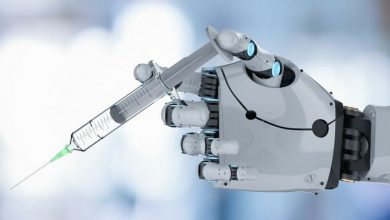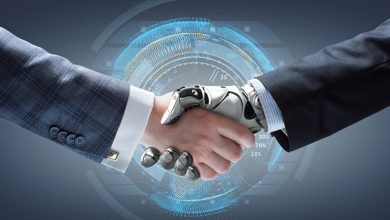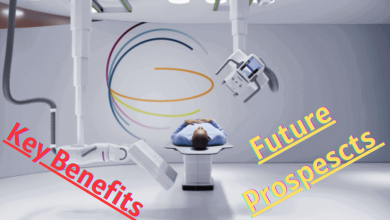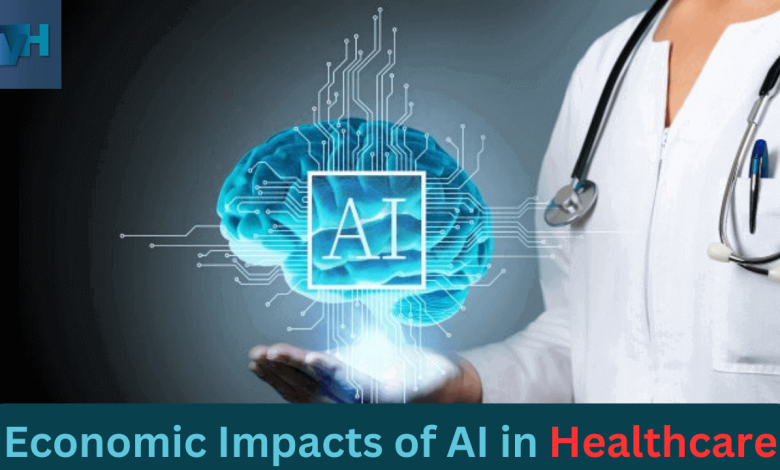
Welcome to the revolutionary world of healthcare. Artificial intelligence (AI) is currently transforming the industry like never before and there is a huge Economic Impact of AI in Healthcare.
In the future, machines will work alongside doctors and nurses to improve efficiency, and accuracy, and personalize treatment plans for each patient.nalizing treatment plans for each patient.
In this article, we embark on an exciting journey to understand how AI is revolutionizing healthcare and the profound economic implications it holds.
From simplifying complex tasks to diagnosing ailments with unprecedented precision, AI’s impact is reshaping the healthcare landscape, unlocking a world of possibilities, and propelling us towards a healthier and more prosperous future.
What is AI in Healthcare?
Simplifying AI: How Machines Can Help Doctors and Nurses
AI, short for Artificial Intelligence, is like having super-smart assistants in the healthcare field. Just as virtual helpers like Siri or Alexa make our lives easier, AI is designed to make doctors’ and nurses’ jobs more efficient.
It can analyze vast amounts of medical data, process information at lightning speed, and provide valuable insights to healthcare professionals, enabling them to deliver top-notch care to patients.
Examples of AI in Healthcare: Virtual Health Assistants, Medical Image Analysis, and Disease Prediction
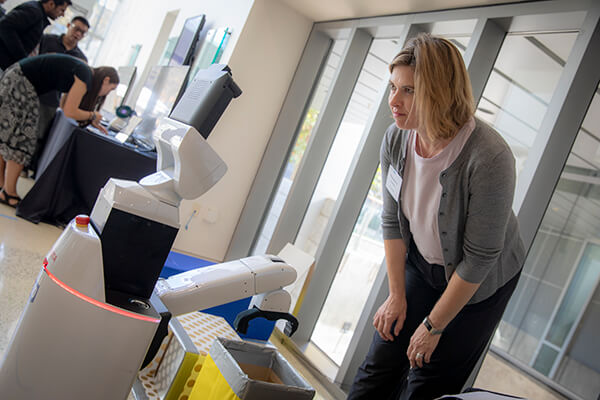
Let’s explore some real-world examples of how AI is making a positive impact in healthcare. Virtual health assistants act as digital companions, helping patients with their medical queries and offering guidance on healthy habits.
AI-powered medical image analysis is a game-changer in radiology, enabling rapid and accurate identification of diseases from X-rays, MRIs, and CT scans. Additionally, AI algorithms can predict potential health risks by analyzing patient data, empowering early intervention and preventive care.
Machine Learning Models Training (All You Need to Know)
Benefits of AI in Healthcare: Improved Efficiency, Enhanced Accuracy, and Personalized Treatment
The advantages of AI in healthcare are truly astounding. First and foremost, it boosts efficiency by automating administrative tasks, such as appointment scheduling and managing patient records, which allows healthcare providers to focus more on patient care.
With AI’s exceptional diagnostic abilities, medical professionals can achieve faster and more precise diagnoses, leading to better treatment outcomes and ultimately saving lives.
Furthermore, Economic Impact of AI in Healthcare include personalized treatment plans tailored to each patient’s unique medical history, genetic makeup, and lifestyle, ensuring the best possible care for everyone.
AI’s Role in Improving Healthcare Efficiency
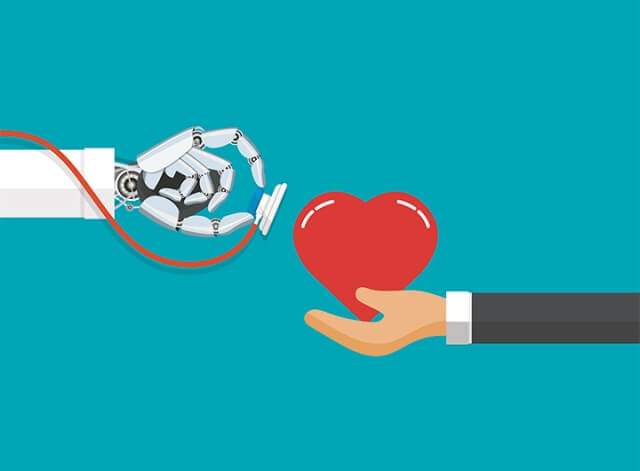
In the fast-paced world of healthcare, time is of the essence. AI steps in as a formidable ally, streamlining processes and enhancing accuracy, allowing medical professionals to focus on what matters most – patient care.
Streamlining Administrative Tasks
Appointment Scheduling and Patient Records
Gone are the days of endless phone calls and long wait times for scheduling medical appointments. AI-powered systems now handle appointment scheduling efficiently and effortlessly.
These smart-systems sync with doctors’ calendars, factor in patient preferences, and find the best available slots, ensuring prompt and convenient appointments for all.
Moreover, AI manages patient records securely and seamlessly, providing instant access to medical histories, treatment plans, and test results at the click of a button.
The Economic Impact of AI in Healthcare devises No more fumbling through paper files; the digital era of healthcare administration has arrived.
Reducing Paperwork and Administrative Costs (Ecological and Economic Impact of AI in Healthcare)
AI doesn’t just tidy up appointment schedules and patient records – it declutters the administrative landscape too. By automating routine paperwork and data entry tasks, AI relieves healthcare staff of mundane administrative burdens.
This newfound efficiency translates to reduced administrative costs, enabling medical facilities to allocate resources towards patient care, staff training, and other essential areas, ultimately improving the overall quality of healthcare.
Enhancing Diagnostic Accuracy
AI-Powered Medical Image Analysis
In the world of diagnostics, every detail matters. AI brings its incredible computational power to the forefront, analyzing medical images with unprecedented accuracy.
Whether it’s X-rays, MRIs, CT scans, or pathology slides, AI algorithms swiftly process the data, detecting even the tiniest abnormalities that might escape the human eye.
With AI’s assistance, medical professionals can make more informed decisions and identify conditions at early stages, leading to timely interventions and better patient outcomes.
Faster and More Precise Diagnosis Leading to Better Treatment Outcomes
Time is a critical factor in medical treatment, especially in emergencies. AI’s lightning-fast image analysis and diagnostic capabilities enable rapid assessment and prompt initiation of treatment plans.
Quicker diagnoses mean an earlier intervention, reducing the progression of diseases and improving patients’ chances of recovery which add to the economic impact of AI in Healthcare.
AI’s accuracy further ensures that treatment strategies are tailored to the specific needs of each patient, maximizing the effectiveness of medical interventions.
The era of AI-driven healthcare efficiency has arrived, promising streamlined administrative processes, accurate diagnoses, and enhanced patient care.
As AI continues to evolve and integrate further into the medical landscape, the possibilities for improved healthcare efficiency are boundless.
Reducing Healthcare Costs with AI

In the realm of healthcare, AI emerges as a powerful cost-saving ally, paving the way for smarter and more efficient medical practices. Let’s explore how AI’s prowess in preventive care, personalized treatment plans, and remote patient monitoring leads to significant reductions in healthcare costs.
Preventive Care and Early Detection
Predicting Diseases Before They Become Severe
Imagine if we could foresee health issues before they escalate into major concerns. Well, with AI’s ability to analyze vast amounts of patient data, it becomes a reality. By identifying subtle patterns and risk factors, AI can predict potential health problems even before they show visible symptoms.
Early detection empowers medical professionals to intervene proactively, preventing the progression of diseases and saving patients from expensive treatments that may arise from late-stage diagnoses.
Reducing Hospitalizations and Expensive Treatments
One important economic impact of AI in Healthcare is Prevention. Prevention is not only better than cure; it’s also more cost-effective. AI’s predictive capabilities contribute to reduced hospital admissions and emergency visits.
By keeping patients healthier through proactive measures, healthcare costs associated with hospital stays and extensive treatments are significantly lowered. This translates to both financial savings for patients and healthcare systems alike.
Personalized Treatment Plans
Tailoring Treatments Based on Individual Patient Data
Every person is unique, and so are their healthcare needs. AI is proficient at analyzing vast datasets, including genetic information, medical histories, and lifestyle choices.
Armed with this knowledge, medical professionals can design personalized treatment plans that target the specific needs of each patient.
This approach minimizes the use of one-size-fits-all treatments that may not be entirely suitable for everyone, thereby optimizing treatment outcomes and avoiding unnecessary medical expenses.
Minimizing Unnecessary Procedures and Medications
Sometimes, less is more. AI’s precision in analyzing patient data helps medical practitioners avoid unnecessary medical procedures and prescriptions.
By focusing only on the treatments that are most effective for a particular patient, healthcare costs are reduced, and patients are spared from potential side effects and complications associated with unwarranted interventions.
How to Become a Prompt Engineer (ChatGPT Prompt Engineering)
AI-Enabled Remote Patient Monitoring
Monitoring Patients at Home to Prevent Hospital Readmissions
After a hospital stay, patients’ health must be carefully monitored to avoid readmissions. AI-enabled remote patient monitoring allows healthcare providers to keep track of patients’ vital signs, symptoms, and recovery progress from the comfort of their homes.
By providing timely interventions when necessary, AI helps prevent relapses and readmissions, ultimately leading to cost savings for patients and healthcare facilities giving another economic impact of AI in healthcare.
Lowering Healthcare Costs by Reducing the Need for Frequent Hospital Visits
Regular visits to the hospital can become costly, especially for patients with chronic conditions. AI-enabled remote monitoring reduces the need for frequent hospital visits by allowing doctors to monitor patients’ health remotely and intervene when needed.
This not only saves patients time and money but also lightens the burden on healthcare systems by focusing on in-person care for more critical cases.
The Future of AI in Healthcare: Pioneering Progress and Possibilities
As we peer into the horizon of healthcare, the role of Artificial Intelligence (AI) takes center stage in shaping a future that transcends our wildest expectations. The evolving synergy between technology and medicine promises a realm of innovations that will redefine healthcare in ways we’ve never imagined.
AI as a Collaborative Tool
AI Supporting Doctors and Nurses, Not Replacing Them
The future holds a symbiotic partnership between AI and healthcare professionals, where the two work hand in hand to provide unparalleled patient care. AI acts as a robust tool, crunching through vast volumes of data, identifying patterns, and generating insights that augment medical decision-making.
Imagine doctors armed with AI-driven data analysis, enabling them to make well-informed decisions quickly. AI doesn’t replace the human touch; it complements it, allowing medical experts to focus on what they do best – connecting with patients on a personal level.
Freeing Up Healthcare Professionals’ Time for More Patient Care
By taking over time-consuming administrative tasks and data analysis, AI liberates doctors, nurses, and healthcare staff to dedicate more time to direct patient care. The heart of healthcare lies in human interaction – listening, empathizing, and nurturing.
With AI shouldering the analytical load, healthcare professionals can invest their expertise and compassion where it matters most, fostering a patient-centric approach that elevates the healthcare experience to new heights.
Generative AI in Healthcare
AI Creating New Medical Knowledge and Research
The future brings forth a wave of generative AI – a form of AI that creates. In healthcare, this means AI generates medical insights, research hypotheses, and even new avenues for exploration.
Imagine AI poring over mountains of medical data, identifying novel correlations and patterns that might have eluded human researchers. This AI-driven creativity could lead to groundbreaking discoveries, unlocking solutions to medical enigmas that have perplexed us for decades.
Advancing Drug Discovery and Treatment Development
The realm of drug discovery is poised for transformation. With generative AI, the process of identifying potential drug candidates becomes a swift and strategic endeavor.
AI simulates drug interactions, predicts molecular structures, and accelerates the identification of promising compounds. This newfound efficiency not only expedites treatment development but also offers hope for tackling rare diseases that might have otherwise been overlooked.
Robotics and AI in Surgery
Assisting Surgeons in Performing Complex Procedures with Greater Precision
Surgical precision reaches new heights with the integration of robotics and AI. Surgeons equipped with AI-assisted robotic systems can perform intricate procedures with unparalleled accuracy.
AI enhances human skills by providing real-time insights, predictive modeling, and even compensating for subtle hand tremors, ensuring surgeries are conducted with meticulous precision.
Reducing the Risk of Complications and Improving Patient Outcomes
Complex surgeries come with inherent risks. AI minimizes these risks by analyzing vast datasets to predict potential complications, offering surgeons insights that aid in preoperative planning and decision-making.
This translates to fewer post-surgical complications, shorter recovery times, and improved overall patient outcomes.
The Economic Benefits of AI in Healthcare
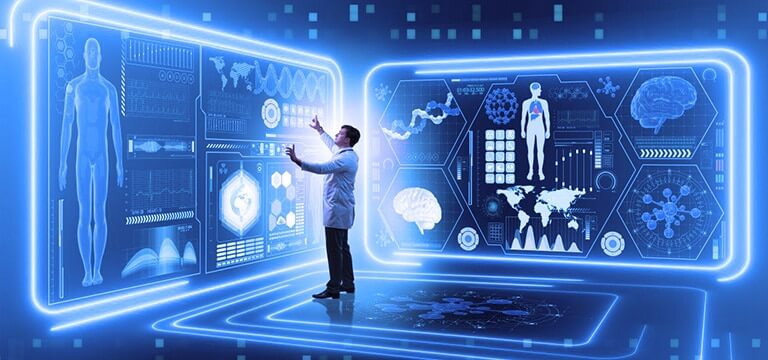
AI’s integration into healthcare not only enhances patient outcomes but also yields significant economic advantages that ripple across the industry and the broader economy.
Explore Awesome Benefits of AI in Education
Boosting the Healthcare Industry
Attracting Investments and Innovation
The marriage of AI and healthcare has captivated the attention of investors and innovators worldwide. The promise of improved medical care, reduced costs, and transformative advancements lures substantial investments into AI-driven healthcare startups and research initiatives.
As more funding pours into the industry, groundbreaking discoveries, and cutting-edge technologies emerge, propelling healthcare into a new era of innovation.
This economic impact of AI in Healthcare can also significantly affect the overall economic status of a country.
Growing the Healthcare Market and Creating New Business Opportunities
AI’s integration fuels the expansion of the healthcare market as new products and services are developed to harness its potential.
From AI-powered medical devices to digital health platforms, an array of business opportunities emerges, spurring economic growth and job creation across various sectors of the healthcare industry.
Improving Overall Economic Productivity
Reducing Healthcare Costs for Businesses and Individuals
By optimizing healthcare efficiency and preventive measures, AI significantly curtails healthcare costs for businesses and individuals alike. Reduced hospitalizations, streamlined administrative tasks, and personalized treatments lead to lower medical expenses, easing the financial burden on both patients and employers.
Consequently, individuals have more disposable income, and businesses can allocate resources to other critical areas of operation.
Allowing More Resources to Be Allocated to Other Sectors of the Economy
As healthcare costs decrease, more resources become available for investment in other sectors of the economy.
With less money tied up in healthcare expenses, individuals can allocate their funds towards education, housing, leisure, and various goods and services, stimulating economic activity in diverse domains.
AI’s Role in Global Healthcare Access
Bridging Healthcare Gaps in Underserved Areas
AI-powered telemedicine and remote patient monitoring technologies break geographical barriers, extending healthcare access to remote and underserved regions.
Patients in rural areas or communities lacking sufficient medical facilities can also benefit also from the economic impact of AI in Healthcare and can now receive virtual consultations, diagnoses, and treatment plans, enhancing overall healthcare equity.
Providing Cost-Effective and Quality Care to Remote Populations
AI’s role in remote patient monitoring allows healthcare providers to reach patients in far-flung regions, reducing the need for extensive travel and associated costs.
With timely interventions and regular monitoring, AI facilitates cost-effective, high-quality care for those living in distant locales, ensuring better health outcomes and economic benefits for both patients and healthcare systems.
Concluding the Contemporary Economic Impact of AI in Healthcare
In conclusion, the alliance of AI and healthcare is propelling us into a new era of transformative possibilities. From boosting the healthcare industry through investments and innovations to improving overall economic productivity by reducing costs, the economic impact of AI is vast and far-reaching.
As AI continues to push the boundaries of medical research and bridge healthcare gaps globally, the future holds a tapestry of new job opportunities, enhanced medical advancements, and a healthier, more equitable world.
However, we must tread thoughtfully, ensuring ethical considerations guide AI’s integration to ensure its positive impact on both healthcare and the broader economy.
So, as we journey into this innovative landscape, let us seize the potential, embrace the change, and create a thriving future for all through the awe-inspiring potential of AI in healthcare.
Surprising Disadvantages of Artificial Intelligence in Education

